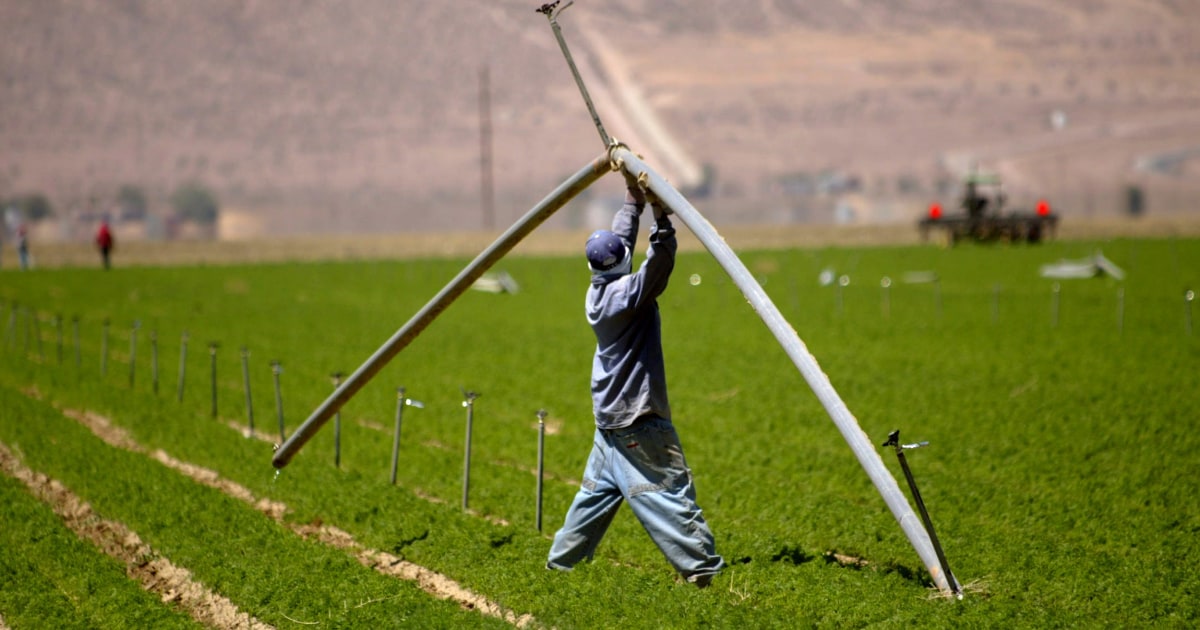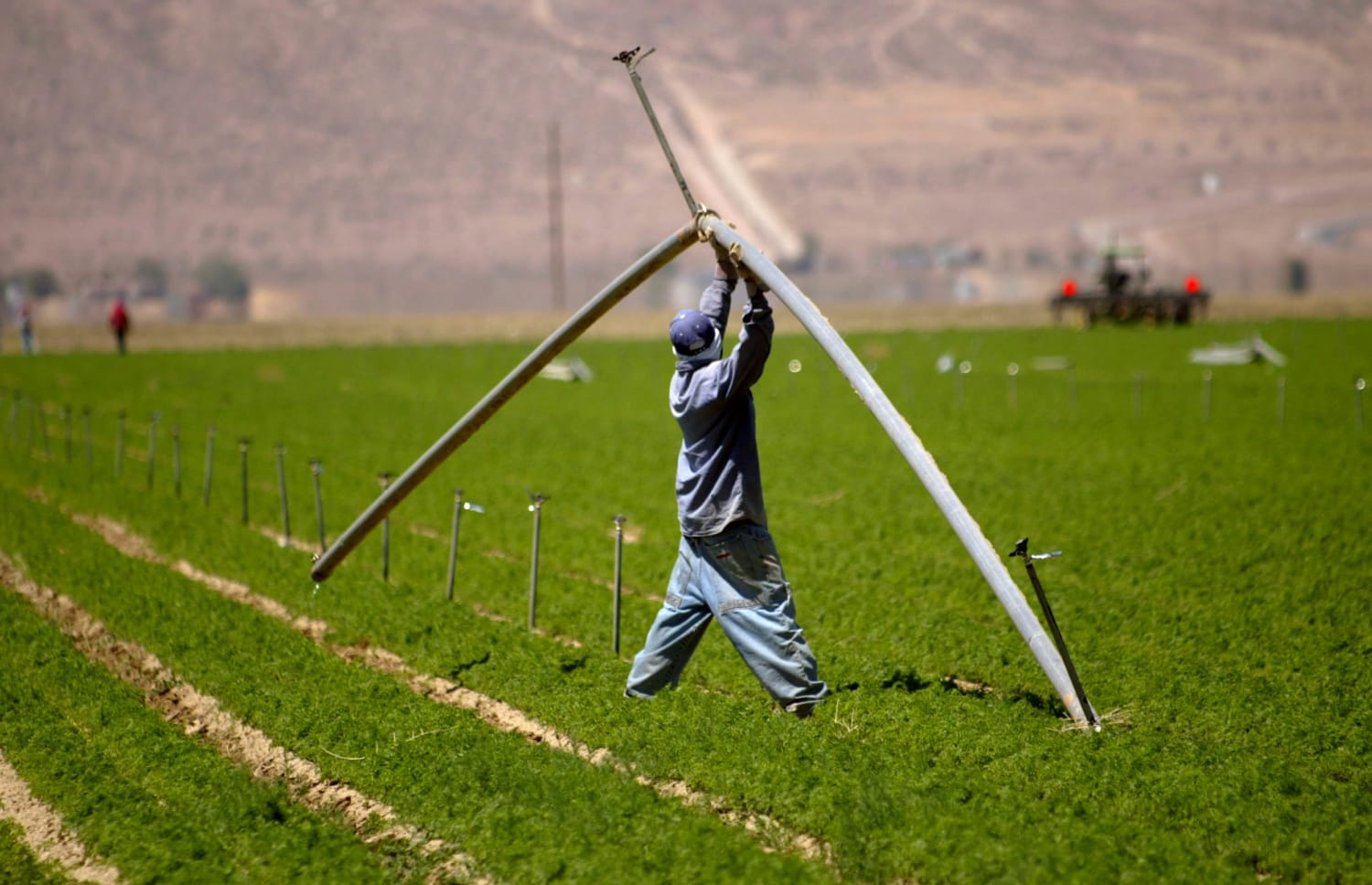
All that farming has led to large water withdrawals from Florida’s aquifer system and requires fertilizer, which leaches through the ground into waterways, emptying nitrogen that has led to destructive algae blooms and severe loss of fish and marsh habitats.
He hoped Gates would have invested in different farming techniques that could help turn around the ecological damages from big agriculture.
“Well, you’d think, if you’re looking for somebody with enough capital to try that, he would go first. Right? But he didn’t,” Quarterman said. “He never did anything that different from before he got here and what other farmers were doing nearby.”
Quarterman guessed that may be because Bill Gates isn’t the one doing the farming. He’s the landlord, or rather, the companies owned by his investment firm are the landlords. And not all the renters are local.
But Zehren of Cascade noted that the firm has been working in Florida and elsewhere to promote ecologically conscious agriculture and that it plans to continue to evaluate its farmland portfolio to improve its overall sustainability.
“In enrolling in Leading Harvest, Cascade has implemented new initiatives on its farmland holdings ranging from adding additional pollinator habitat in Nebraska to planting wildlife-friendly trees on dry pivot corners in Florida to hosting grain bin safety rescue training for the local community in Louisiana to converting numerous diesel power units to electric to reduce carbon output, to name a few,” Zheren said.
Carrots, onions and french fries
A survey of the Gateses’ farmland holdings shows that a broad range of the vegetables that Americans eat can be traced back to his land and that some of this land has also been owned by other billionaires. Starting in 2012, Gates’ investment firm began buying family farms in South Georgia. One of those farms, Stanley Farms, specialized in Vidalia onions, and another, Coggins Farms, focused on growing carrots. In 2014, Cascade Investments combined both of those companies and the land into Generations Farms, which continued to grow vegetables.
Some of that land, including nearly 300 acres, was sold in 2019 to the California-based Grimmway Farms, the world’s largest carrot producer. Another 5,500 acres was sold to Generation Land Georgia, a company that shares an address with Miami-based Optimum Agriculture, which bought Generations Farms in 2019. Members of the Stanley family now work for Generations.
In north Louisiana, the Gateses’ investment firm owns about 70,000 acres of land through at least three other shell companies. There farmers primarily grow soybeans, rice, corn and cotton. One of the largest plots of land owned by a subsidiary of the Gateses’ investment arm in Louisiana, Angelina Plantation, was previously owned by former WorldCom CEO Bernard Ebbers, who died last year, a month after being released from prison. That land is now largely rented out to various farmers.
Along the Columbia River border between Washington and Oregon, the Gateses purchased 100 Circles Farm, a 14,500-acre plot of land, for $171 million in 2018, according to property and business records. There, on Gates’ parcels, an industrial farm grows potatoes for McDonald’s french fries. Cascade declined to comment on its specific land holdings.
But farmer advocates say the Gateses’ large-scale farm purchases don’t make room for smaller farmers to break into the market. After all, few can out-bid Bill Gates.
“Farmers just aren’t owning the assets anymore. Someone else is owning that asset, whether it’s rented equipment or land. Someone else is building that equity on their back,” said Johnathan Hladik, the policy director at the Center for Rural Affairs, who is also a farmer in Nebraska. “When Bill Gates, or whatever other investment arm owns the land, a farmer still needs to farm it. But they’re just renting it. So if now the best farmers can do if you want to stay in farming is rent this land, you’re not going to get the benefits that come with land ownership.”
Fake meat
While the Gateses are best known for their philanthropic work tackling large-scale societal problems, like funding the coronavirus vaccine and controlling malaria via the Bill and Melinda Gates Foundation, they have also invested in some companies rethinking food production and have endorsed the use of genetically modified seeds as one way to increase farming productivity and feed more people globally.
In 2010 the Gates Foundation Trust invested about $23 million in Monsanto, the genetically modified seed and chemical company, though it sold its shares the next year following outcry from environmental groups.
Bill Gates was also an early investor in fake-meat companies aiming to combat the environmental harms of raising livestock by creating more convincing, plant-based alternatives. He backed Impossible Foods, which relies on genetically modified soybeans, and also held shares of Beyond Meat through the Bill and Melinda Gates’ Foundation Trust, though SEC filings show those shares were sold in 2019. In May, Bill Gates also transferred about $850 million in shares of the agricultural machinery company John Deere to his wife after the two shared publicly their plans to divorce.
Besides the enrollment of their landholdings in Leading Harvest, the Gates Foundation in 2020 also created an agricultural nonprofit, Gates Ag One, which focuses on bringing affordable solutions to small-scale farmers in sub-Saharan Africa and South Asia to improve crop productivity. The Gates Foundation said in a statement that its agriculture efforts do not extend to farming in the U.S.
But those working on projects with both investors and farmers to create ecologically sustainable farming methods and support diverse and disadvantaged farming communities say rethinking agriculture and working to avert a climate crisis go hand in hand. They add it will take those with large parcels of land, like the Gateses’ U.S. farmland holdings, to do it.
“We know that one of the best ways to sequester carbon is through the soil. And that it’s going to take big swaths of land, like what Bill Gates has taken, to do that,” said Konda Mason, the founder and president of Jubilee Justice and Potlikker Capital, which funds and supports regenerative agriculture projects owned by people of color.
Mason notes that trying to draw hard lines between one’s philanthropic work and one’s investments does not work.
“Now you have a foundation where the mission on one side is to save the world and to do all these wonderful things surrounding climate, and on the other side they’re investing in the exact same things that are causing the harm that the mission side is trying to protect,” Mason said. “It makes no sense.”.
Source: | This article originally belongs to Nbcnews.com










